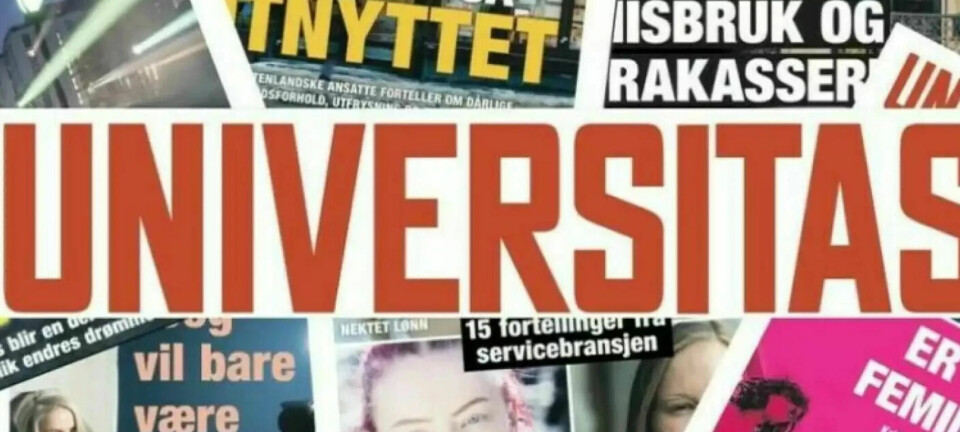
Wants money for imam education
The Faculty of Theology has asked for money to develop a study program for an imam education at the University of Oslo.
– The time has definitely come for an imam education at the University of Oslo, says Trygve Weller, dean of the Faculty of Theology (TF) at the University of Oslo (UiO).
After Easter the Liberal Party of Norway Venstre proposed a Scandinavian governmental imam education. Dean Wyller takes a positive attitude towards the proposal, and he has now handed in a contribution to the university budget in which he asks for financial support for such an education. The imam education is to be developed like the clergyman education.
– It is important for society that the education of Norwegian imams happens within the frames for discussion and research freedom at UiO. The Norwegian mentality and the Norwegian traditions should be familiar to the Muslim leaders. A Norwegian governmental imam education will also contribute to a dialogue between religion, tolerance and respect, says Wyller.
Wants collaboration
However, it is not the first time a discussion on Islam studies has been raised at UiO. Three years ago a panel lead by former pro-rector Haakon Benestad worked on the establishment of a Center for Islam Studies at the university. The suggestion was subsequently put away and forgotten, primarily because of economic reasons and because of the priority process that took place at the university at that time, according to Benestad. Wyller thinks it is about time to re-open the case.
– We want to remind people that we have always thought that Muslim studies with relevance for an imam education should be established at UiO, since the university is the one educational institution in Norway with the most competence when it comes to Islam, says Wyller.
There is a pronounced difference between educating students within religion and educating religious leaders. Wyller wants collaboration between the various faculties within the frame of the program religion in pluralistic societies, and collaborations with the Islam communities to obtain this. He pictures a distinction between the academic research based part and the practical part of the education. A corresponding model is used for the clergyman education at TF.
– The hard part when it comes to these issues is not the Islam studies themselves, but whether the studies should be included in an education for imams. In that case we have to co-operate with some Islam organizations and make sure that we stand by our principles on research freedom and independence. I therefore think some practical classes as an imam have to be held within the Islam communities, says Wyller.
Positive religious communities
Secretary-general of Islamsk Råd Norge (Islam Council Norway) Shoaib Sultan sat in the committee that voted unanimously for the establishment of an Islam study programme, after two years of work, in May 2007. He has not been in contact with TF or Wyller since then, but he still takes a positive attitude towards a Center for Islam Studies at UiO.
– What we want is not a specific imam education but an Islam study programme with a broad range, open to both future imams and others. Specializing and further education as an imam must happen within the specific religious communities, says Shoaib.
He cannot imagine that subjects from the University of Oslo will be compulsory for imams who get employed in Norwegian mosques.
– The religious communities must decide for themselves who they would like to employ as imams, but many will probably want their leaders to have been through Islam studies at a Norwegian educational institution, says Shoaib.
– The best solution
The Muslim Student Community is very positive towards an imam education at the university.
– Imam education at the university is the best solution both for the Norwegian society and Norwegian Muslims, says leader Sofian Iqbal Raja.
He points out good results from the USA, where the government gives economical support to institutions that educate imams, says Raja.
– In USA students get training in traditional Islam, which at the same time supports Western democracy and values. I think we can manage that balance in Norway, too, says Raja.
To be discussed in the university board
The suggestion of the imam education in future budgets is now to be discussed in the university board. Pro-rector Inga Bostad will not say anything about when the case will be treated.
– This is a case that will demand a lot of time and much discussion, says Bostad.
At this point she does not want to comment on whether the university board will listen to political signals in the consideration process.
– I have no more comment than that we will discuss this internally before we decide on how we will proceed, says Bostad.
The Norwegian Labour Party´s leader in the church, education and research committee in the Norwegian Parliament, Marianne Aasen, has stated that she is very skeptical towards a governmentally funded imam education. The minister for higher education and research gave her opinion on the matter last time in 2008, stating that she is positive towards a Norwegian imam education sponsored by the government.
State Secretary in the Ministry of Education and Research Kyrre Lekve says that a responsibility for a possible decision on establishing an imam education lies with UiO, and adds that the ministry has no objections to establish such an education.
– I see the arguments on how an imam education in Norway will have positive effects. We will not make the first move towards the establishment of such an education, but we will await a possible decision from the university, says Lekve.

































